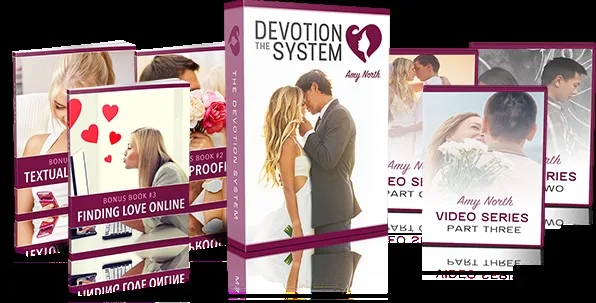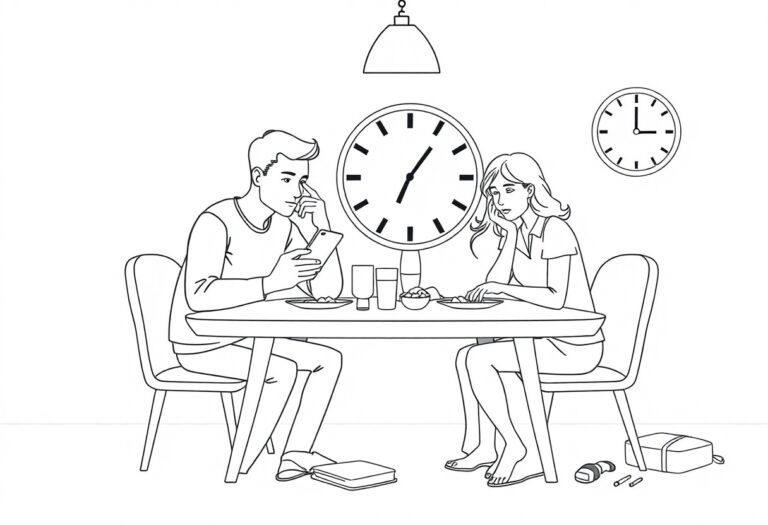Can Mediation Work in High-Conflict Divorces?
There’s a common misconception that high-conflict divorces are too challenging for mediation to be effective. However, you may find that mediation can serve as a valuable tool to help you navigate the complexities of a contentious separation. This blog post will explore how mediation can assist in resolving disputes, reducing stress, and encouraging communication, enabling you to move forward more amicably. Understanding how mediation works in high-conflict divorces, especially the question: Can Mediation Work in High-Conflict Divorces?, can empower you to make informed decisions about your divorce process.
The Anatomy of High-Conflict Divorces
Can Mediation Work in High-Conflict Divorces?
Defining High-Conflict Dynamics
High-conflict divorces often involve intense disputes, where both parties are unable to communicate effectively, leading to ongoing litigation and heightened emotions. These dynamics typically arise from a combination of unresolved personal issues, differing values, and a desire to control the situation. You may find yourself entangled in a cycle of blame and hostility, making collaboration nearly impossible.
The Emotional and Financial Toll on Families
The stress of high-conflict divorces can have severe repercussions on families, affecting not only you and your ex-partner but also your children. The emotional strain may manifest as anxiety, depression, or feelings of isolation, while the financial burden can lead to significant long-term consequences, including depleted savings and costly legal fees. Experts suggest that children exposed to such conflict may suffer academically and socially, leading to a vicious cycle of distress and instability.
The emotional and financial toll on families during high-conflict divorces is profound. You might find yourself spending thousands on legal fees, while also grappling with the emotional strain of constant arguments and hostility. Studies reveal that children caught in these disputes experience increased levels of stress and behavioural issues, impacting their development and relationships. This unrelenting turmoil often results in a fragmented family unit, leaving lasting scars that can affect you and your loved ones for years to come. Emphasising a healthier resolution approach, such as mediation, can provide a more constructive path forward.
Mediation’s Role: A New Perspective
Mediation presents a fresh approach to resolving disputes in high-conflict divorces, focusing on collaboration rather than confrontation. This process encourages open dialogue, allowing both parties to express their feelings and perspectives in a structured environment. By fostering understanding and empathy, mediation can help you navigate complex emotions and take the first steps toward a mutually acceptable resolution. Moving away from the traditionally adversarial methods, this perspective transforms the divorce process from a battleground into an opportunity for reconciliation.
Principles of Mediation in Conflict Resolution
The principles of mediation revolve around voluntary participation, confidentiality, and neutrality. Each participant controls the direction of the discussions, ensuring that you feel empowered in the decision-making process. Confidentiality encourages honesty, as what you share in mediation cannot be used in court. Additionally, the mediator’s neutral stance promotes fairness, helping to build trust and facilitate cooperation between you and your spouse, even in a high-conflict scenario.
Benefits of Mediation Over Traditional Litigation
Mediation offers several significant advantages compared to traditional litigation. You can save time and money, preserve relationships, and maintain control over your decisions. Unlike court proceedings, which can drag on for months or even years, mediation often reaches resolution in a matter of weeks. Furthermore, the costs associated with litigation—such as legal fees and court expenses—often far exceed those of mediation, allowing you to allocate resources more effectively in your post-divorce life.
Financially, opting for mediation can substantially decrease your divorce expenses. While the average cost of divorce litigation can surpass £20,000, mediation typically ranges between £1,500 and £5,000, depending on the complexity of your case. This reduced financial burden allows you to invest in your future rather than accumulating debt from lengthy legal battles. Additionally, mediation fosters a cooperative atmosphere, which is vital if children are involved, enabling you both to co-parent more effectively without the damaging fallout often associated with adversarial proceedings.
Tailoring Mediation Techniques for High-Conflict Situations
Mediation techniques must be specifically adapted to effectively manage the unique challenges posed by high-conflict scenarios. A flexible approach allows you to accommodate the emotional turbulence often present, ensuring that communication remains constructive. Establishing clear ground rules can help maintain civility, while using techniques such as active listening and summarising can assist in clarifying misunderstandings. Ultimately, this tailored mediation process fosters a more conducive environment for resolution, driving parties towards mutually beneficial outcomes.
Strategies for Mediators in High-Conflict Scenarios
Mediators tackling high-conflict situations should employ strategies that prioritise emotional regulation and focused communication. Techniques like private sessions, or caucuses, can help separate the parties when emotions run high, allowing you to address individual concerns without escalating tensions. Working to reframe negative dialogue and encouraging collaborative problem-solving can further pave the way for negotiated agreements, ensuring that both parties feel heard and respected throughout the process.
Essential Skills for Participants to Foster Success
Participants in high-conflict mediations must develop skills that enhance their ability to engage constructively. Key skills include emotional intelligence, effective communication, and a willingness to compromise. By honing these abilities, you empower yourself to navigate challenging discussions, fostering a more productive mediation experience. Taking time to practice mindfulness and reflection before mediation sessions can also equip you with the resilience needed to handle potential conflicts in a more positive manner.
Developing emotional intelligence enables you to recognise and manage your feelings, which is vital in a high-stress setting. Effective communication skills help articulate your needs while remaining receptive to the other party’s perspective, promoting understanding. Additionally, cultivating a mindset geared towards compromise can significantly increase the chances of reaching a satisfactory agreement. Engaging in role-playing exercises or seeking guidance from a professional could further enhance these necessary skills, paving the way for a more successful mediation outcome.
Common Pitfalls and Challenges in High-Conflict Mediation
High-conflict mediation can often be fraught with numerous challenges that can derail progress. Emotions may run high, leading to impasses where parties refuse to engage meaningfully. Additionally, a lack of trust can hinder open communication, causing both sides to become entrenched in their positions. Miscommunication or misinterpretation of intentions can exacerbate existing tensions, while past grievances may resurface, complicating attempts to reach an agreement. Awareness of these potential pitfalls is necessary for navigating mediation effectively.
Recognising Red Flags: When Mediation May Not Work
Identifying red flags can indicate whether mediation is likely to succeed. If either party displays an unwillingness to cooperate, a history of abusive behaviour, or persistent emotional volatility, these factors suggest that mediation may not be appropriate. Situations involving significant power imbalances or where one party has no interest in making concessions can also signal that mediation efforts could be futile. Understanding these signs can save you time and emotional energy in the long run.
Overcoming Resistance and Building Trust
Addressing resistance in high-conflict mediation requires a strategic approach to build trust between parties. Establishing a safe environment where each individual feels heard is necessary. You might consider employing techniques such as separate one-on-one meetings to initially gauge motivations and concerns. This helps to uncover underlying issues that may not surface in joint sessions. Acknowledging each party’s perspective and demonstrating empathy can foster rapport, paving the way for more fruitful dialogue later in the process.

Realising the Potential: Success Stories and Lessons Learned
Many couples have discovered the transformative power of mediation, even amidst high-conflict situations. Success stories often highlight the profound shifts in communication and collaboration that can emerge from this process. Mediation not only resolves disputes but can also lead to better relationship dynamics post-divorce, fostering an environment where future interactions are more constructive.
Case Studies of Successful High-Conflict Mediation
Numerous case studies illuminate the effectiveness of mediation in challenging divorces. Here are a few notable examples:
- Case Study 1: A couple with contested custody over two children resolved their disputes in 8 mediation sessions, resulting in a parenting plan that reduced conflict and increased co-parenting satisfaction by 75% over six months.
- Case Study 2: A high-net-worth couple spent 12 hours in mediation, achieving a financial settlement that was 20% more favourable than the initial litigation proposals, saving them over £30,000 in legal fees.
- Case Study 3: Mediation facilitated a communication breakthrough between a couple with ongoing mistrust, leading to a successful agreement on asset division, which improved their relationship for joint decisions about their children’s education.
Key Takeaways for Future Mediations
Valuable lessons emerge from mediation experiences that can aid future negotiators. The significance of setting a positive tone cannot be understated, as a cooperative atmosphere fosters constructive dialogue. Active listening and empathy play critical roles, allowing for better understanding and resolution of underlying issues. Establishing clear ground rules for communication can further prevent escalations, and engaging a professional mediator ensures experienced guidance tailored to your unique situation.
Summing up
When considering whether mediation can work in high-conflict divorces, it’s essential to understand that it can be effective if both parties are willing to participate in the process. Your ability to communicate openly and focus on shared goals can significantly impact the outcome. While it may not resolve every issue, mediation provides a structured environment for addressing disputes to reach a mutually satisfactory agreement. Ultimately, it can save time, reduce stress, and lead to a more amicable post-divorce relationship.
divorce mediation | Separation and divorce | how does divorce mediation work | Legal Separation versus Divorce








